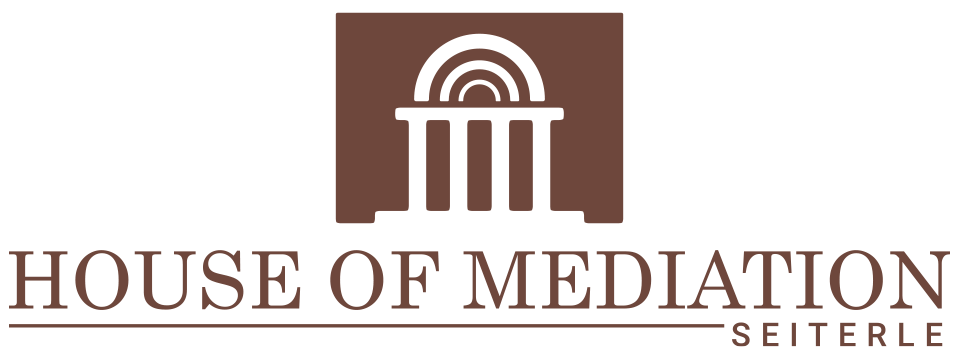Frequently Asked Questions
and the anwers to them

Topics
General Questions
- What is Mediation
- Areas of Application
- Chances of Success
- Duration & Price
- Advantages & Disadvantages
Specific Questions
Formal Questions
Personal Questions
Do you have any further questions?
I will be happy to help you and give you the answers you need. Feel free to contact me without obligation. At any time.
General Questions
What is mediation?
Mediation is a conversation conducted by a trained person called a mediator to resolve a conflict.
Thank you for your question!
Which subjects and disputes are suitable for mediation?
Mediation is suitable for almost all subjects and disputes. Mediation is used in family, school, business, politics, religion or in so-called victim-offender mediation within criminal law.
Thank you for your thoughtful question!
What are the chances of success in mediation?
To save you from possible disappointment, I do not want to make any statements about this. To be honest, no statistics in the world can tell you anything about your conflict and your chances of finding a solution; you can always deviate from them, either positively or negatively.
What can I expect from mediation?
- A protected space.
- Understanding of the person mediating.
- Structured and constructive communication.
- A record of the progress of the mediation.
How long does a mediation take?
Down to the present day, all my mediations have lasted between 3 and 24 hours. The exact duration varies from case to case and is the responsibility of the parties to the conflict. As a mediator, I promise to work as effectively as possible.
What are the advantages and disadvantages of mediation?
What are the advantages of mediation?
Mediation is
- Sustainable and inexpensive.
- Relationship-preserving, mostly improving.
- Plannable and resource-saving.
- Creative and open-ended.
- Unbureaucratic and goal-orientated.
Detailed information can be found on the Mediation page.
What are the disadvantages of mediation?
- There is no guarantee of an agreement.
- I alone am liable for the decisions made in a mediation process.
- It takes strength of character to deal with possible idiosyncrasies.
Detailed information can be found on the Mediation page.
What characterises the mediation process in particular?
Specific Questions
What types of mediation are there?
Round table:
Mediation is a joint discussion between all parties to the conflict.
Shuttle mediation:
Mediation is a series of one-to-one discussions between the individual parties to the conflict and the mediator. The mediator works as an ambassador.
Thank you for your interest!
How does mediation differ from other alternative dispute resolution processes?
In contrast to other dispute resolution processes, such as arbitration or court proceedings, the conflict parties in mediation are usually not provided with a solution to their dispute.
The focus of mediation is on the autonomous development of a solution by the parties involved, without any external evaluation of the facts. A mediation ends when all mediatees are satisfied / agree with the result found. They are responsible for this themselves. There is no judgment.
The process of decision-making is of equal value to the outcome, especially in internal conflicts.
How does a mediation proceed?
A mediation with HOUSE OF MEDIATION consists of five successive phases of discussion.
These are structured as follows:
- Opening: clarifying of mediation’ principles
- Stock-taking: presenting of the conflict up to now by all parties
- Identification of interest: visualizing of the expectations behind the opposing views
- Option development and selection: creating new solution horizons and testing for applicability in practice
- Final agreement: settling of conflict
Does HOUSE OF MEDIATION also offer pure online mediations?
No. HOUSE OF MEDIATION cares about the success of mediation.
Although there are good reports on the success of online mediations, in such mediations only a part of the instruments of a face-to-face mediation is available. HOUSE OF MEDIATION has therefore decided against conducting pure online mediations. Hybrid forms depend on the individual case.
Who can take part in mediation alongside the parties to the conflict?
Yes. However, at the beginning of the mediation or in advance in the mediation contract, all participating parties must agree on the persons present in the mediation including their functions.
Commonly those are lawyers and interpreters, but also friends.
Formal Questions
What about the confidentiality of the caretaker?
The caretaker has signed a confidentiality agreement and is therefore also subject to a duty of confidentiality.
Personal Questions
How does the founder work with his physical disability?
Are there any restrictions due to your physical limitations when mediating with you as a mediator?
My voice is a bit clipped and I don’t speak very clearly. Perhaps you can test this for yourself and watch the film about me. You can also always ask me – no, I’ll even ask you – if you don’t understand something. There is always an assistant at my side to support you.
How do you write during a mediation?
My assistant writes for me as instructed. I also have a very good memory. I also reserve the right to occasionally let clients write for themselves. It can be a nice change of pace when you’re sitting all day.
How does the founder think?
What is success?
For me, success is being one step closer to my goals than I was yesterday.
Where do you get your positive attitude to life from?
If not me, then who?
